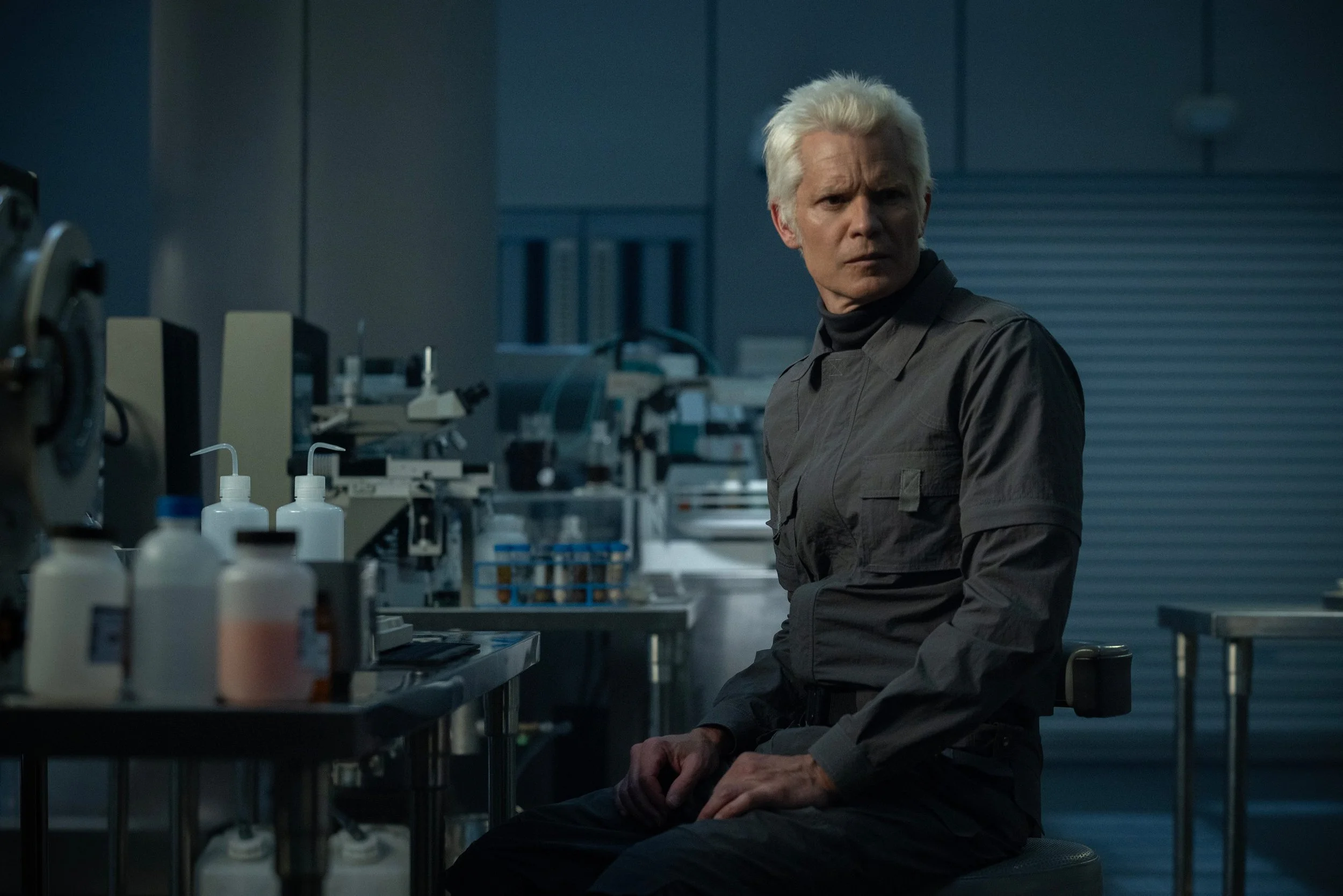‘Alien: Earth’ Review
It takes virtually no time to understand what showrunner Noah Hawley’s vision for what an Alien show might be in Alien: Earth. Ridley Scott’s 1979 classic has spawned many sequels since terrifying audiences with a frightening vision of a disposable humanity in the face of the unknown. Scott’s return for 2012’s Prometheus saw the series meaningfully exploring life outside of the xenomorph—and subsequently why the xenomorph matters so much to so many people. The scientific pursuit of the unknown became the driving force behind Scott’s Prometheus and Alien: Covenant, much to the dismay of some audiences who just wanted a xenomorph to wreak havoc. Hawley seems to share in Scott’s fascination as his approach to the long-running franchise uses the xenomorph as a throughline to ground audiences in larger conversations about purpose, freedom, and what it means to be human. Balancing nightmarish horrors with character-focused drama, Hawley builds upon a familiar framework in mostly successful ways with Alien: Earth.
The xenomorph is more of a looming presence in Alien: Earth than a persistent threat. Hawley does not build towards the xenomorph as typically happens within the films. Instead, he introduces multiple hostile alien species with varying characteristics that allow audiences to be surprised not by the damage caused but by how it comes about—a rare occurrence in the Alien franchise as the formula has become so predictable and the threat permanently baked into the marketing. When the Weyland-Yutani-owned research vessel USCSS Maginot crashes into Earth, the cargo onboard becomes the centrepiece of a conflict between Weyland-Yutani and Prodigy Corp—an Earth-based company whose CEO, Boy Kavalier (Samuel Blenkin), becomes obsessed with the specimens onboard the vessel that has just crash landed into his company’s jurisdiction. The security of the cargo remains the highest priority for Chief Security Officer Morrow (Babou Ceesay)—a cyborg (human with cybernetic enhancements) with a steadfast allegiance to Weyland-Yutani.
Prodigy Corp has its own secret project operating on a remote island, dubbed “Neverland”, where Kavalier has been experimenting with new technology that allows for a human consciousness to be transferred to a synthetic body. Led by his chief scientists, Dame Sylvia (Essie Davis) and her husband, Arthur (David Rysdahl), the company successfully transfers the minds of multiple children to synthetic bodies. Coined “The Lost Boys” and given names from Peter Pan that seem fitting, the hybrids each individually wrestle with their purpose in life and the unknown potential that their new bodies provide. The first successful hybrid is Wendy (Sydney Chandler), whose brother, Hermit (Alex Lawther), works for Prodigy Corp as a medic and is one of the first on the scene when the USCSS Maginot crashes.
There’s a lot to unpack narratively with Alien: Earth, especially once it starts delving deeper into the multiple species aboard the research vessel, contending with corporations fighting over property, and the issues that arise from putting children’s minds into synthetic bodies that have boundless potential. Fortunately, Hawley does excellent work juggling the many elements at play without sacrificing the thrills expected of an Alien property. There’s no shortage of goopy effects and merciless violence to appease horror fans, and it goes a long way to keeping the atmosphere of the show palpably tense. Still, it’s the attention to the science fiction elements that let Alien: Earth feel like a meaningful addition to the franchise. “The Lost Boys” and their android leader, Kirsh (Timothy Olyphant), offer mysteries and quandaries that feel enriching to solve and have the potential to expand the universe in fascinating ways.
However, where the show tends to falter is in its more obvious expansions. The corporate nonsense continues to harp on familiar notes (did you know that no corporation cares about you?). At the same time, there are too many of “The Lost Boys” that some arcs feel underwhelming because they just don’t have the time to be given importance when there is so much happening at any given moment. Some of those arcs remain crucial to the narrative, but others seem to be waiting for their time in the spotlight. Also, the number of new alien species introduced from the beginning is undoubtedly the tip of the iceberg, but it also exemplifies Hawley’s aversion to economical storytelling. There always needs to be a lot of plates spinning to keep audiences invested, but the Alien franchise has always been comfortable with a couple of plates spinning and a single driving force. It’s the downside to modern prestige television: everything needs to mean more than it does on the surface.
The characters which the show emphasizes—Wendy, Krish, and Morrow, in particular—are each individually more interesting than the ones surrounding them. The performances from the three respective actors elevate the material further—especially in the case of Olyphant, who brings a fun energy to a mostly severe and internal character. But they’re also given much more fleshed-out roles. For an ensemble cast, it’s impressive how many performances are exemplary. Bound up in varying blends of curiosity and fear, every character feels like they have something to lose and prove. What that is is not so clear and is often the result of characters being given less depth.
Most complaints against Alien: Earth are relatively minor and are often slight caveats to an otherwise impressive result. The most glaring is arguably the music, in which Jeff Russo provides a fitting score that is undercut by every episode ending with the most jarring integration of modern rock and metal from Tool to Metallica to The Smashing Pumpkins. It just doesn’t fit in an otherwise consistent presentation. The Peter Pan obsession of Boy Kavalier makes sense narratively, but it is also painfully adhered to until it’s a bit too silly (and creates some of the shallowness in the character work). The digital effects are mostly impressive, but there are even times when the xenomorph of all things looks silly in motion. All minor complaints that don’t necessarily hurt the show too much in a vacuum, but pile up over time.
Alien: Earth is at its best when it’s providing tantalizing mysteries without sacrificing the pulpy thrills. It highlights why the Alien franchise continues to be one of the best hybrids of science fiction and horror because it understands that the unknown is terrifying. The horror is where the show excels, providing ample opportunity for tense moments punctuated by gruesome violence. Multiple episodes in the six episodes provided for review feature visceral horror beats amidst the philosophically minded conversations, but the whole show is drenched in a thick fog of tension. No one feels safe in Alien: Earth, and that’s true to the DNA of the franchise. As a result, Alien: Earth stays true to its roots while creating new, exciting roads for the series to explore in the future.
FX’s "Alien: Earth” premieres with two episodes on Tuesday, August 12 at 8pm ET on FX and on Disney+ in Canada.


